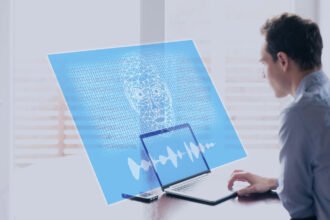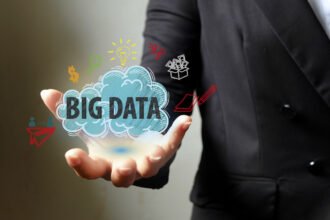Big data has been a game changer for almost every industry. While it has created many new opportunities for businesses to improve efficiency and provide higher quality services, it also raises some other concerns.
One of the biggest challenges is protecting intellectual property rights (IP) in the era of big data. These issues even affect mobile technology companies.
How Does Big Data Affect IP Rights?
Protecting intellectual property rights has been a challenge since the Copyright Act of 1909. It’s become even more difficult in the age of digital technology.
A couple years ago, Steven Tepp, founder and president of Sentinel Worldwide wrote a piece on big data and IP rights for the U.S. Chamber of Commerce website. Tepp is an intellectual property rights lawyer, so he hopes his statements will be listened to by policymakers throughout the world. Here is one of the things he emphasized.
“History teaches that vibrant intellectual property protection (much of which is already in place) is a critical piece of a policy structure that will support innovation and growth. What remains is to apply it to the specifics of the big data marketplace, not only as it stands now, but with an eye towards how it may develop.”
Tepp points out that politicians need to address these problems in the near future. Existing laws are seriously outdated and don’t reflect the challenges governments and corporations face in the modern world.
Here are some ways big data confounds the problem. Hopefully, raising awareness of these issues will spur policymakers to reform IP laws in the age of big data.
Anything Can Be Reverse Engineered
Virtually everything is governed by algorithms these days. These algorithms can easily be reverse engineered.
Some experts have previously spoken against strengthening intellectual property rights, such as Pamela Samuelson of the Yale Law Journal in 2002. ”The design of intellectual property rules, including those affecting reverse engineering, should be tailored to achieve these utilitarian goals and should extend no further than necessary to protect incentives to innovate. Intellectual property rights, if made too strong, may impede innovation and conflict with other economic and policy objectives.”
However, big data has made it easier than ever to reverse engineer products and algorithms, so a new appreciation for IP rights is needed.
Growing Use of Open Source Code
Open source code and big data have complemented each other in marvelous ways. Open source code has also created some threats to intellectual property rights and exposed innocent open source developers to baseless lawsuits. Here are some questions that have been raised:
These questions may seem easy to answer, but the reality is much more complicated. Firmer answers will be needed in an era where more technology relies on open source code.
How Can IP Rights Be Protected from Hackers and Rogue States?
Even if the legal framework of intellectual property rights is more clearly established, it’s difficult to protect them from entities that have little regard for international rules of law. Hackers routinely violate the rights of their targets. They can easily sell code and other trade secrets to unscrupulous partners.
The same problems can take place at a higher scale with countries that don’t sign copyright treaties. Many countries have had difficulty protecting their trade secrets from China. Chinese companies often violate IP rights and create their own knockoff products.







